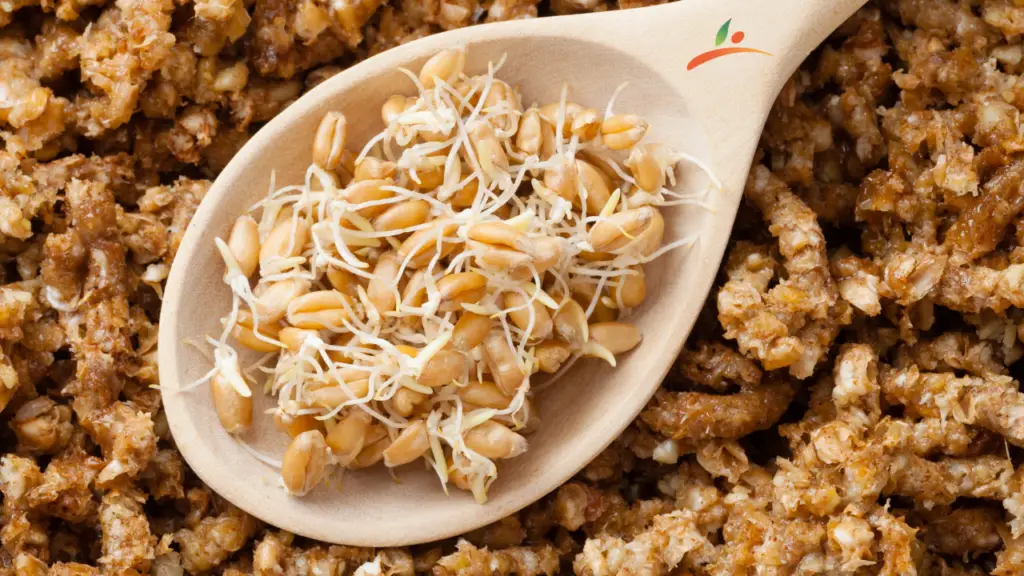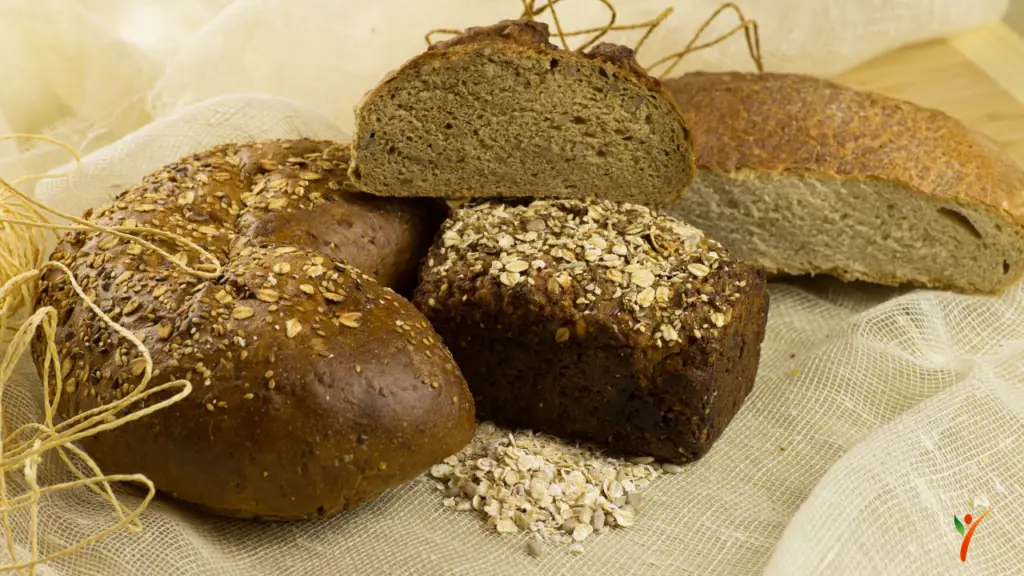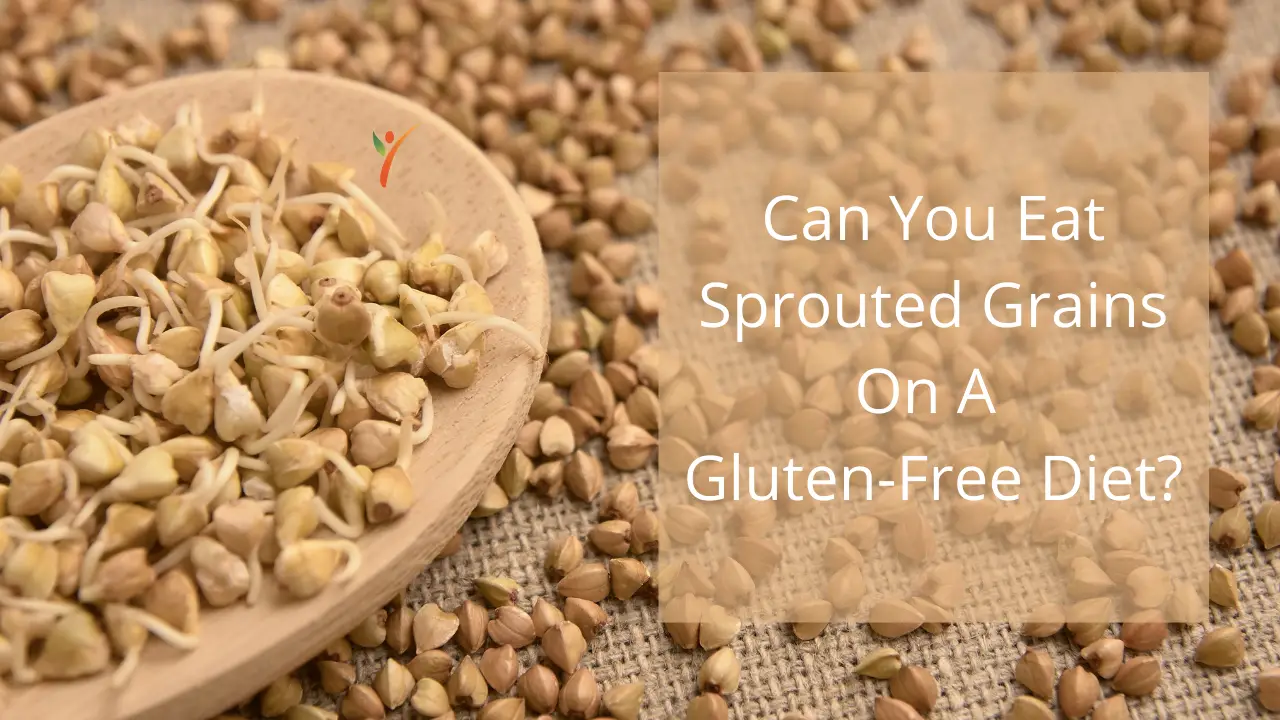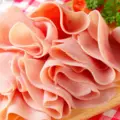When eating a gluten-free diet, you tend to worry about everything you eat. Even a slight mistake of eating the wrong thing may mean a health disaster.
It is only natural to keep a thorough check on all foods you eat. But things can indeed get confusing at times, especially when you are reasonably new to a gluten-free diet and lifestyle.
So, while you deliberate what to eat and what to avoid, have you ever wondered – can you eat sprouted grains on a gluten-free diet? To anyone who knows about how one needs to avoid grains on a gluten-free diet, this could be a real question.
Do you categorize sprouted grains with all the other grains, or can you eat sprouted grains on a gluten-free diet?
Are you tired of looking for the answer to this question on your own? We are here to help you! Before we delve into the question of can you eat sprouted grains on a gluten-free diet or not, we need to know about something else.
To understand the question, we need to analyze the relationship between sprouted grains and gluten intolerance.
Are Sprouted Grains Gluten-Free?

Most nutritionists consider sprouted grains a healthy option for anyone with celiac disease or gluten intolerance. The fact is that they are, in fact, grains only.
Therefore, as long as the grains are wheat, rye, or barley, even if they are sprouted, they pose as much threat on a gluten-free diet as they usually would. People believe that sprouting the grains will lower their gluten content. But sadly, this is not true.
Sprouting merely alters the carbs present in the grains. But it does not ever change the grain's protein content. It means that gluten as a protein remains in the grains in wheat, rye, or barley. The lack of change in gluten content even through sprouting has a reason. Most of the volume of grain is due to its endosperm. This endosperm helps the grain plant to grow to its full potential.
When the sprouting happens, it breaks down the starch into its components. It is also what happens during the process of fermentation. But in no way does the sprouting change the proteins in the grain. Sprouted grains mean those grains that do not mature into full-grown plants but are harvested just after germination. Therefore, it is always better to avoid wheat, rye, and barley as sprouted grains on a gluten-free diet as a precautionary measure.
But then, are all sprouted grains bad for you?
Certainly not. The only issue would arise with sprouted wheat, rye, or barley.
But as for all other gluten-free grains, they would be a very healthy option for you. Doctors and nutritionists have been strongly advocating sprouted grains on a gluten-free diet. The sprouted grains are almost similar to the whole grains, which are super healthy and nutritious.
If you are an avid lover of bread, you surely know the pain of missing out on it. And when on a gluten-free diet, you can't ever indulge in bread due to the strict restrictions.
But when you find a gluten-free substitute for bread, you will surely enjoy it! You may ask if some sprouted grain bread on a gluten-free diet would be okay. And the answer is yes! But, read on.
Sprouted Grain Bread

Some researchers carried out a study based on gluten-free bread in 2007—the surprising results stemming from that research show just how superior the sprouted grain bread can be.
The study found that,
- While the regular bread had a whopping 75000 ppm (parts per million) of gluten in it, the sprouted/fermented one had a mere 12 ppm.
- Therefore, all in all, something as little as 12 ppm is gluten-free.
- The upper limit for any food item to get the label of gluten-free is 20 ppm.
- The sprouted grain bread is way below that and considered safe to consume.
If you wonder what exactly this sprouted grain bread looks like, you probably have seen it already.
Sourdough bread has been trending in the food world lately. And this sourdough is nothing but sprouted grain bread! So how exactly is this sprouted grain bread made? And is bread made of sprouted wheat gluten-free too?
Well, for starters, let us understand how this sprouted grain bread comes to your kitchen. Firstly, the grains are thoroughly dried up and then milled.
This initial process is just like any other grain process. But recently, bread called Essene Bread has gained rapid popularity. The making of this bread is quite different from the regular sprouted grain bread. The newly sprouted wheat comes in use for the Essene bread.
This bunch of sprouted wheat first becomes a sticky mess when you coarsely grind it. It looks like what you can describe as something similar to ground-up beef. Then this sticky and messy component gets its shape. The bakers shape it into a flat and round loaf before starting the baking process. Unlike regular bread, which contains loads of yeast and therefore rises, this bread does not. When ready, this bread would look something like a cake but is a dense loaf.
You may not always readily find sprouted grain bread in the market. Since not many people know of its process or the lack of demand, there are not many bakers or sellers. But fret not. You can even make sprouted grain bread on your own!
Here is a super simple recipe that you can use to make your very own sourdough or sprouted grain bread. Do not worry about not having the best baking skills. The formula is simple enough for you to try your hand at baking for the first time!
Sprouted Grain Bread Recipe

For making this bread, you have a wide variety of options for the grains—no need to even worry about which ones to use because the more, the merrier.
You can make do with grains like brown rice, buckwheat, oats, millets, quinoa, or any other for starters. Just make sure that you avoid wheat, rye, and barley.
- Firstly, you will keep these grains together for soaking overnight. After which, you must drain them.
- Leave these grains as is, and they will eventually sprout.
- In the next step, you need a food processor, and even if you do not have one, you can use a hand blender or grinder. Process these moist grains together and stir till they mix well.
- You may also add some salt per your liking before mixing. For more flavor, you can add some chopped dry fruits or nuts.
- Next is where you need to give a good shape to the dough. Shape the dough into a dome and make sure that it is flat.
- Pop this in the oven for baking at 325° for around 2.5 – 3 hours, watching closely.
- The most important thing to do then is waiting for the bread to cool down before you do anything with it. If you immediately cut the bread when warm, it will only leave the bread in a mess—cutting the bread when warm will make the whole thing super gooey in texture.
- The reason that the bread needs to cool down is for the starches in it to set well. It will hold the ingredients together, and you will get delicious well-set bread.
The Goodness Of Sprouted Grain Bread

The best part about sprouted grain bread is its nutritional content. This bread comes packed with protein and fiber. But while it is full of good proteins, you do not have to worry about the gluten protein.
And if you are super weight conscious, this bread will be your best option due to its low carb content.
On a gluten-free diet, this bread is a savior due to its low glycemic index, which also helps you digest it faster. And being able to digest more quickly implies that your body can absorb even more nutrients.
Well, now that you have made some delicious sprouted grain bread, how do you store it? The not-so-good thing about sprouted grain bread is how it does not last very long when not stored well.
That is why you might need to make fresh batches of it very often. But if you wrap up this bread well or store it in a bread box at room temperature, it will last well. If you would like it to last even longer, you can either freeze the whole loaf or after slicing it up.
Still not convinced why you should consume sprouted grain bread? Here are some of its benefits.

Benefits Of Sprouted Grain Bread
Rich In Nutrition
This bread requires multiple whole grains; it is power-packed with the best nutrients. All the whole grains you use to make this bread except wheat, rye, and barley are full of healthy proteins and vitamins. So while on a gluten-free diet, it might be challenging to consume adequate nutrients, sprouted grain bread does the job for you.
Great For Weight Loss
If you are all for losing weight and getting fit on a gluten-free diet, sprouted grain bread is the one for you. Due to its low-carb content and rich proteins, this bread aids in weight loss. No need to worry anymore about eating bread and gaining pounds.
Watching Your Sugar Intake
When you have diabetes, you know just how careful you need to be while consuming any food. And baked products would be a restricted category given their sugar content. With sprouted grain bread, you can rest assured that you will maintain balanced blood sugar. It happens since the sprouted grain bread has a comparatively lower glycemic index. You can enjoy baked products with some sprouted grains without any worries!
High Nutrients and Low Anti-Nutrients
While there are nutrients, you will also find anti-nutrients that work opposite it. Anti-nutrients are those components that hinder the exact absorption of nutrients. The whole process of sprouting dramatically increases the level of amino acids. These are essential for our body, which the regular grain bread does not provide us. While the sprouting increases the nutrients, it also decreases the anti-nutrients.
Easy Digestion
The bad thing about regular baked goods is how difficult they are to digest. But with sprouted grains, it is not so. Slices of sprouted grain bread have a low lectin level and higher enzyme levels, which ease digestion. Since the sprouting already breaks down the grains' starch, digestion becomes much simpler and faster.

Final Words
So, the answer to the question – can you eat sprouted grain on a gluten-free diet, is yes and no. As long as you can avoid wheat, rye, and barley as sprouted grains, you are good to go.
Adapting sprouted grains to your gluten-free diet will be highly healthy and beneficial.
While you can consume sprouted grain bread, you can curate many other recipes. Since people have become more conscious about healthy eating, you may find all kinds of recipes to help you. Experiment with them and see how thankful your taste buds will be to you!






